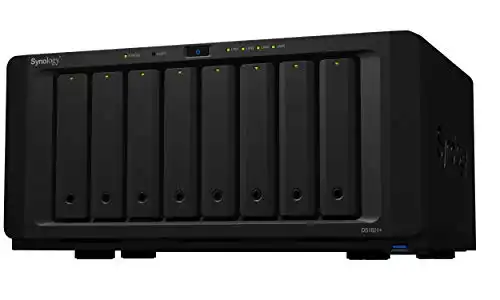Are you searching for the perfect storage solution for your innovative needs? Look no further than this article where we do Synology VS Buffalo.
Today, we'll delve into the product range, performance, user interface, data protection, security, and value for money of both brands.
Discover which one will meet your demands for innovation and take your storage game to the next level.
Table of Contents
ToggleTable of Contents
Synology vs Buffalo: Product Range and Options
When it comes to product range and options, you'll find that Synology and Buffalo offer a wide variety of choices. Both companies understand the importance of innovation and cater to the needs of an audience that desires cutting-edge solutions.
Synology, known for its advanced network-attached storage (NAS) devices, offers a diverse range of models to suit different requirements. From entry-level options for home users to high-performance models for businesses, Synology has it all. Their products boast features like data encryption, cloud integration, and multimedia streaming, ensuring that you have all the tools necessary for a seamless and efficient storage experience.
Buffalo, on the other hand, specializes in network-attached storage, wireless networking, and external storage solutions. They offer a wide range of NAS devices that are designed to meet the demands of both home and business users. With features like RAID support, remote access, and easy setup, Buffalo ensures that you can store and access your data with ease.

Synology vs Buffalo: Performance and Speed
If you're looking for high performance and speed, both Synology and Buffalo have options that will meet your needs. Take a look at the table below to compare the performance and speed features of both brands:
| Feature | Synology | Buffalo |
|---|---|---|
| Processor | Intel quad-core | Dual-core |
| Memory | Up to 32GB | Up to 4GB |
| Data Transfer Speed | Up to 10Gb/s | Up to 2.5Gb/s |
| RAID Support | RAID 0, 1, 5, 6, 10, and JBOD | RAID 0, 1, 5, 6, 10, and JBOD |
Both Synology and Buffalo offer powerful processors, with Synology having an advantage with its quad-core Intel processor. In terms of memory, Synology allows for higher capacity, offering up to 32GB compared to Buffalo's maximum of 4GB. When it comes to data transfer speed, Synology takes the lead with a maximum speed of 10Gb/s, while Buffalo offers up to 2.5Gb/s. Lastly, both brands support various RAID configurations for data redundancy and protection. Overall, both Synology and Buffalo provide innovative solutions for high-performance and speedy storage options.
Synology vs Buffalo: User Interface and Ease of Use
To compare the user interface and ease of use, both Synology and Buffalo provide intuitive and user-friendly options.
When it comes to user interface, Synology offers a sleek and modern design that's visually appealing and easy to navigate. Their DiskStation Manager (DSM) interface is known for its simplicity and efficiency, allowing users to quickly access and manage their data with just a few clicks.
Buffalo, on the other hand, offers a user interface that's equally intuitive, but with a more traditional look and feel. Their web-based interface is straightforward and easy to understand, making it accessible for users of all levels of technical expertise.
Whether you prefer a cutting-edge design or a more traditional approach, both Synology and Buffalo deliver user interfaces that prioritize ease of use and innovation.
Synology vs Buffalo: Data Protection and Security
For data protection and security, both Synology and Buffalo offer robust features and reliable safeguards.
With Synology, you can take advantage of their advanced RAID configurations, such as RAID 5 and RAID 6, to ensure redundancy and protect against data loss. Their Snapshot Replication feature allows you to create point-in-time backups, providing an extra layer of data protection. Additionally, Synology offers AES 256-bit encryption, securing your data during transmission and at rest.
On the other hand, Buffalo provides features like RAID 1 mirroring and hot-swap functionality, allowing for seamless drive replacement. They also offer AES 256-bit encryption and SSL/TLS protocols for secure data transfers.
Both Synology and Buffalo prioritize data protection and security, giving you peace of mind when it comes to safeguarding your valuable information.
Synology vs Buffalo: Price and Value for Money
When comparing Synology and Buffalo, you'll find that both brands offer competitive prices and excellent value for money. For an audience that desires innovation, it's important to consider the price and value of these storage solutions.
Synology offers a range of NAS devices that cater to various needs and budgets. Their prices are competitive, ensuring that you get the most bang for your buck. With Synology, you'll not only get a reliable and high-performing storage solution, but you'll also enjoy the added value of their innovative features and intuitive user interface.
On the other hand, Buffalo also offers affordable NAS devices that provide great value for money. They prioritize simplicity and reliability, making them a solid choice for those seeking a cost-effective storage solution without compromising on quality.


